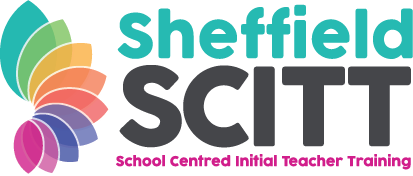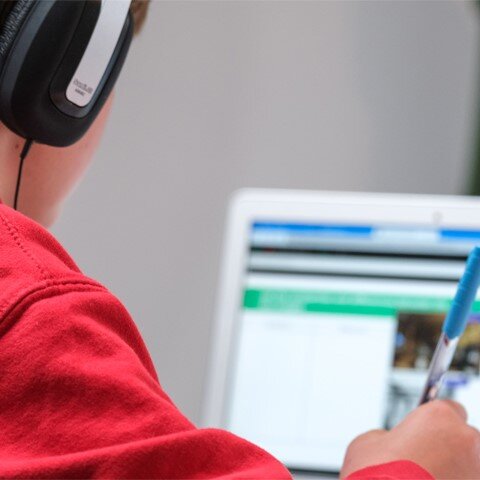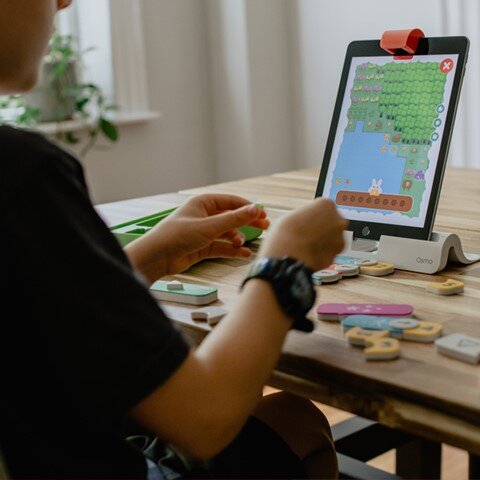Hannah Milnes - Primary SCITT trainee 2020/2021
"It (Covid) definitely hasn’t curbed my enthusiasm in teaching- if anything it’s just strengthened my admiration for the career and highlighted my love for children’s unyielding positivity."
Hannah Milnes - Primary SCITT trainee 2020/2021
Hannah Milnes is one of our remarkable current cohort of trainees. Training to become a teacher in a global pandemic makes the training unique to this academic year. We chat with her about how it has affected her training and how she is managing to overcome the numerous obstacles Covid poses to teaching and her training.
“I really am loving every minute: the hub lessons are informative, the mentors and primary team are compassionate and understanding, and the freedom we are given is invaluable. Being based within the classroom from day 1 allows you to get to know the students and the class routine within days, and this makes teaching so much easier as you can build on that rapport with students who already know and trust you as an adult within the classroom. I couldn’t recommend it more.”
How has Covid-19 affected your training?
During autumn term, the impact of Covid-19 was noticeable but not hugely significant. The Sheffield SCITT ensured that trainees were able to attend placement as usual, and working in primary bubbles meant that much of the classroom routine was as normal as possible. Within my placement school, the school was split into extended bubbles of KS1 and KS2, so that each side of the schools didn’t mix. This was obviously a shame, but I was still able to meet staff in the corridors briefly and make the most of my experience. Now though, during the lockdown, learning has mostly moved online. At this point within the year, we were scheduled to begin our second placement within a new school, but the programme has been adapted so that we are able to negotiate online learning with a familiar mentor and class. This has made the process a whole lot easier and smoother, and our second placement will simply begin after the lockdown ends.
How has your school adapted due to the current restrictions?
The school is still open for key worker children, and these children are being taught by TAs and support staff whilst the class teachers work remotely, providing work for both the children at home and children in class.
How has the shift to online teaching been for you?
Strange and frustrating at times, particularly if there is a lesson that you know would have thrived off student interaction and practical participation. With recorded lessons as well, there is always the temptation to keep recording until you achieve perfection- something which would not have been possible during live lessons. However, we have been very lucky as the children have showed such resilience and eagerness to participate regardless of the online barriers. It really makes my day if I’ve found myself getting stressed by the transition, but I see all their smiling faces on the live lesson. In fact, throughout the year in general they have been a source of such joy during a very difficult year for everyone.
Do you feel like your training is being supported throughout this pandemic?
Absolutely, I’ve been overwhelmed by how supportive the Primary team and mentors have been throughout this period. Even though they find themselves in challenging and stressful situations, they have never once made trainees feel like a burden, and have only ever provided support and high quality training throughout. I feel very privileged to have been allowed to continue as normally as possible.
How are you finding the balance between teaching/training and home life?
It’s definitely a challenge, and was a real step-up from my undergraduate degree’s workload. I suppose ultimately this year’s home life hasn’t been impacted too much, as there hasn’t been any opportunity to socialise anyway really! But I would definitely advise future trainees to go easy on themselves, particularly during autumn term. Currently, I find the workload a bit more manageable as even though there is an increase in teaching, I feel a lot more comfortable with the planning process by now. I always like to get most of my work completed by Saturday, so that I can keep Sunday free ahead of the next week.
What has been the hardest thing to adjust to? What has helped you overcome this?
I think being able to switch off. I often think I’m giving myself down time, but find myself thinking constantly about what I need to do next or worrying about things outside of my control. It’s hard to think of advice to avoid this, particularly when you’re studying something that you care a lot about. I’ve found what helps me is to spend any spare time with other people if possible, even if it’s just going for a walk with a friend or sitting watching a film with your housemates, as long as there is somebody there to distract yourself with.
What would a typical day entail for you during the current restrictions?
Last week, I was teaching remotely. Within the day, I would complete some of my planning for the next week, whilst also responding to work posted on Seesaw (the online learning platform that my placement school have been using). There would be 2 recorded lessons for each child to watch per day, and many of these I had recorded during the previous weekend. During the afternoon, there would be a live Zoom lesson which I would either teach or observe if my mentor was delivering.
This week, I am back in school working with the key worker children. This means that I continue to plan for the recorded videos and online zooms, but my mentor will deliver these whilst I deliver them to the children in school. It’s been so nice to be based within a classroom again, and by planning both the zooms and the face to face lessons it means that I gain experience within both fields.
Do you still feel as enthusiastic about teaching as you did when you started?
I think even more so. Because there’s been so much that has been omitted during this year (for example school trips, assemblies, staff meetings etc) I think I’m even more excited to experience things like that during my NQT year. It definitely hasn’t curbed my enthusiasm in teaching- if anything it’s just strengthened my admiration for the career and highlighted my love for children’s unyielding positivity. A child’s enthusiasm is infectious, and I think the significance of that has been even more prominent during this year.
What have you learnt about yourself from your training so far?
I’ve learnt that a lot of work doesn’t feel so overwhelming if you are passionate about it. As much as the workload is challenging, each piece of work has a direct impact on your performance, so being able to see your own improvement is hugely rewarding. As the year progresses too, much of the planning process becomes quicker and more habitual.
I’ve also learnt that after a 3 year English degree, I know absolutely nothing about basic grammar!
What would you say to someone that wants to start teacher training but is feeling disheartened due to the current restrictions?
I would completely understand, but I also think that this year has proven that anything can happen at any point. Training during a pandemic is beneficial in that it prepares you for unprecedented situations and strengthens resilience. It also highlights the importance of education, and shows you just how much children can surprise and motivate you.
How are you finding your current training year with The Sheffield SCITT?
I really am loving every minute: the hub lessons are informative, the mentors and primary team are compassionate and understanding, and the freedom we are given is invaluable. Being based within the classroom from day 1 allows you to get to know the students and the class routine within days, and this makes teaching so much easier as you can build on that rapport with students who already know and trust you as an adult within the classroom. I couldn’t recommend it more.
Do you have any advice for current and future trainees?
Don’t try to reinvent the wheel. I often felt as though I had to redesign every resource because it was ‘cheating’ to use my mentor’s or an online one. This isn’t true; as long as you are completing your own individual planning then this will naturally ensure that your own personal spin will be applied. Also, make time to step back and enjoy it. Celebrate the ‘small’ achievements, because you will accomplish so much throughout the year. Reflecting on what you need to improve is so much easier than reflecting on what went well, but remember to allow yourself to feel proud about what you have achieved.







